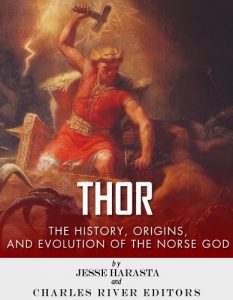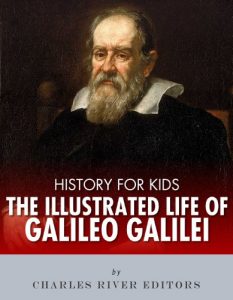*Includes pictures of Bell and important people, places, and events in his life.
*Includes pictures of Bell's inventions and some of his designs.
*Includes some of Bell's most inspirational quotes and descriptions of his work.
*Includes a Bibliography for further reading.
*Includes a Table of Contents.
"There cannot be mental atrophy in any person who continues to observe, to remember what he observes, and to seek answers for his unceasing hows and whys about things." – Alexander Graham Bell
Today, Alexander Graham Bell is remembered almost solely for one of the few things he didn’t have in his laboratory: the telephone. Long hailed as the inventor of the telephone, that accomplishment has nevertheless overshadowed a long and legendary scientific career that saw Bell contribute to a vast number of fields, ranging from geology to aeronautics. Bell also had the misfortune of being outshined by his contemporary Thomas Edison, who invented the incandescent light bulb and has gone down in history as America’s greatest inventor.
Like many great scientists and inventors, Bell had an unusually gifted intellect that was nurtured from an early age, and even as a child he had access to a workshop that allowed his curious mind to experiment and work. He was also multi-talented, flourishing in music, art, and even a unique form of sign language as his mother grew deaf, an event that would play an influential role in his development of various fields of communication. But ironically, as with Tesla, Edison, and Galileo, Bell’s obsession with science and his eccentric learning methods made him a poor student in a formal school setting.
Bell’s interest in automation and sound led to nearly 20 years of work that he began as a teenager and culminated with the invention of the first telephone, a patent Bell received in March 1876 for "the method of, and apparatus for, transmitting vocal or other sounds telegraphically ... by causing electrical undulations, similar in form to the vibrations of the air accompanying the said vocal or other sound." He was hardly the only one working on the concept; Bell filed for a patent the same day scientist Elisha Gray filed his patent for a similar device.
Bell will always be remembered for inventing the telephone and the company that took his name, but he spent an entire lifetime exploring different scientific and medical fields. Biographer Charlotte Gray noted that the ever-curious Bell would actually read Encyclopedia Britannica at night in an attempt to find new things to work on. Bell eventually worked on everything from a breathing apparatus to water filters and aircrafts.
Legendary Scientists: The Life and Legacy of Alexander Graham Bell profiles the life and legacy of the inventor of the telephone, while examining his career and contributions to science and technology. Along with pictures of important people, places, and events, you will learn about Alexander Graham Bell like you never have before, in no time at all.
*Includes pictures of Bell's inventions and some of his designs.
*Includes some of Bell's most inspirational quotes and descriptions of his work.
*Includes a Bibliography for further reading.
*Includes a Table of Contents.
"There cannot be mental atrophy in any person who continues to observe, to remember what he observes, and to seek answers for his unceasing hows and whys about things." – Alexander Graham Bell
Today, Alexander Graham Bell is remembered almost solely for one of the few things he didn’t have in his laboratory: the telephone. Long hailed as the inventor of the telephone, that accomplishment has nevertheless overshadowed a long and legendary scientific career that saw Bell contribute to a vast number of fields, ranging from geology to aeronautics. Bell also had the misfortune of being outshined by his contemporary Thomas Edison, who invented the incandescent light bulb and has gone down in history as America’s greatest inventor.
Like many great scientists and inventors, Bell had an unusually gifted intellect that was nurtured from an early age, and even as a child he had access to a workshop that allowed his curious mind to experiment and work. He was also multi-talented, flourishing in music, art, and even a unique form of sign language as his mother grew deaf, an event that would play an influential role in his development of various fields of communication. But ironically, as with Tesla, Edison, and Galileo, Bell’s obsession with science and his eccentric learning methods made him a poor student in a formal school setting.
Bell’s interest in automation and sound led to nearly 20 years of work that he began as a teenager and culminated with the invention of the first telephone, a patent Bell received in March 1876 for "the method of, and apparatus for, transmitting vocal or other sounds telegraphically ... by causing electrical undulations, similar in form to the vibrations of the air accompanying the said vocal or other sound." He was hardly the only one working on the concept; Bell filed for a patent the same day scientist Elisha Gray filed his patent for a similar device.
Bell will always be remembered for inventing the telephone and the company that took his name, but he spent an entire lifetime exploring different scientific and medical fields. Biographer Charlotte Gray noted that the ever-curious Bell would actually read Encyclopedia Britannica at night in an attempt to find new things to work on. Bell eventually worked on everything from a breathing apparatus to water filters and aircrafts.
Legendary Scientists: The Life and Legacy of Alexander Graham Bell profiles the life and legacy of the inventor of the telephone, while examining his career and contributions to science and technology. Along with pictures of important people, places, and events, you will learn about Alexander Graham Bell like you never have before, in no time at all.












